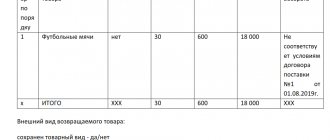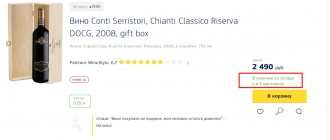Product certification is a certificate of product compliance with quality standards established by production standards. This confirmation ensures that the product is safe for the consumer. The certification procedure is strictly regulated by law.
Certain types of services are also subject to certification, for example, those provided in the field of healthcare, public catering, that is, in industries in which the results of actions directly affect the consumer.
Who needs to register and why?
Russia and other countries of the world consider work on product quality to be a priority in the development of the manufacturing sector of the economy. This goal can be achieved through certification. By controlling quality, states can be confident about the safety of consumers within their countries, and offer only products that meet the highest standards for import.
It is also beneficial for conscientious manufacturers and suppliers to certify their products, even if their product category or technology does not fall under mandatory quality confirmation. By issuing a certificate, businessmen strengthen the reputation of the manufacturing company or supplier: they publicly declare the standard quality of their products and technologies.
If a manufacturer or supplier is required to certify products, this guarantees that goods that could harm customers will not be released onto the market, and harmful production technologies will not be used.
Classification: dividing certification into types according to different criteria
Certification is classified by type depending on the characteristics of goods and technologies, requirements for checking their quality and other conditions.
In the basic classification, procedures are divided into types according to the following criteria:
according to state or territorial standards , when quality is confirmed according to GOST, valid in a particular country, community of states or throughout the world;
according to the principle of voluntariness or compulsoryness , when manufacturers of potentially dangerous goods and technologies are required to undergo certification, and entrepreneurs who are not burdened with such an obligation do it voluntarily in order to have a competitive advantage in the market;
for serial products or batches, when a certificate is issued for a specific volume of produced or imported goods.
What products are required to be certified?
There are several lists of products that must be certified. But they are purposefully systematized into a single list, within which they are divided by branches of economic and economic activity.
When opening a business, it is important to find out before starting production or supplies whether you will need to issue a certificate for a specific type of product or production technology.
Traditionally, any state in the world certifies products whose intended use may endanger the lives of consumers. For example, household electrical appliances, tobacco products, tires for car wheels, toys and other products intended for children and many others.
How is the procedure done?
There are several certification systems, therefore the procedure is not the same, but in any of them the following general stages are distinguished:
- Formation of a package of documents for submitting an application. The process allows the use of electronic documents, provided there is a digital signature with a certain qualification.
- Work with documents in a state-accredited certification center, which has permission to provide services of this kind and is included in the unified register.
- Signing an agreement with the center, which establishes the conditions of the procedure and stipulates the price for its implementation.
- Testing selected product samples to determine their compliance with standard requirements. The result of the work carried out is a compiled protocol, which reflects all the actual test results obtained.
- Organizing and conducting an on-site inspection of certification services to study the production process and determine compliance of production conditions with the requirements of the standard.
- Making a final decision to refuse or issue a certificate.
- Registration and issuance of a document confirming the quality.
The work of certification centers and the system as a whole is controlled by Rosstandart, an executive body known as the Federal Agency for Technical Regulation and Metrology. The agency provides government services in the field of technical regulation and metrology. In the system of government bodies, it is subordinate to the Ministry of Industry and Trade of the Russian Federation.
Scheme of working with the “Honest Sign”
Connection to the national labeling system is carried out according to a single scheme. Step by step steps include:
- Obtaining by the manager an enhanced qualified electronic signature.
- Registration on the site, with the installation of all drivers and plugins for cryptographic protection.
- Updating online cash registers.
- Purchase of equipment for scanning barcodes.
After this, you can start working in the system, following the established rules.
What is included in the package of documents for certification?
You will need to prepare:
- An application indicating the details of the applying company. Only the manufacturing company has the right to initiate certification of a domestic product or technology. Foreign products are certified, including at the request of the dealer.
- Legal documents for business: registration documents confirming the legal activities of the applicant, its legal status as an economic entity. This may be copies of constituent documents, a certificate of delivery for tax registration, information about details. When preparing copies as an attachment to the application, the applicant must have with him the originals of all collected documents.
- A technical passport or other document with the performance characteristics of the product, which contains a detailed description, as well as instructions intended for buyers.
- A list of regulations that establish a quality standard for products submitted for certification. It is important to check the relevance of these acts on information and legal portals before submitting an application. They must be valid over time.
- Documents that were previously issued as confirmation of product quality or previous quality protocols generated at the end of testing.
- Other documents that contain information that in one way or another influence the decision to issue a quality certificate. Submitted at the discretion of the applicant.
This is far from an exact list of documents, because the list of official papers required depends on the type of certification. It is also important to take into account that some certification centers have the right to request any additional information about the product.
Foreign companies, for example, are additionally required to provide a user manual translated into Russian.
Appearance of the declaration
This document does not have a government form, but must contain the following information:
- Applicant company.
- The director of the company or other authorized person accepting the declaration.
- Detailed description of the product, including the EAEU HS code.
- Manufacturer information.
- What technical regulations does it meet?
- Evidence base.
- Validity.
- Signature of the responsible person accepting the DS TR CU.
- Registration information (date, number).
What is the validity period of the certificate?
The chosen certificate scheme determines its validity over time. Typically, the quality of a product or technology is confirmed for domestic manufacturers for a period of three years. But if we are talking about certification of contract products, then a document is issued for it for a period of up to one year or for another period, depending on the country from which the delivery comes.
After the certificate expires, the procedure is repeated. Moreover, it is important for the applicant to think about this in advance, because he does not have the right to produce or import a new batch of goods or use technology based on a previously received document - the certificate only applies to the old batch.
The repeated procedure does not differ from the primary one, unless its rules have changed at the legislative level over time. Previously completed certification does not provide any advantages to the applicant.
Types of dairy products
Technical regulation 033 applies to the following dairy products:
- all types of milk;
- cream;
- ayran;
- acidophilus;
- Varenets;
- sourdough;
- cottage cheese;
- yogurt;
- kefir;
- cultured butter;
- condensed milk;
- kumiss;
- lactulose;
- curdled milk;
- serum;
- buttermilk;
- fermented baked milk;
- cheese and more.
All of these products and all their variations are subject to declaration or state registration.
What are the benefits of getting a certificate?
A correctly, honestly and effectively operating certification system is beneficial to everyone: the state, business, and consumers. But only entrepreneurs enjoy a wide range of benefits from confirming the quality of the goods produced, imported and the technology used. The opportunities that certification opens up for business are the following:
- Changing the competitiveness of goods and technology for the better. It is customary to talk about successful completion of the verification procedure in corporate news. This is how it is possible to attract the attention of consumers, expand the audience of buyers, and tell competitors that they will have to make room in the market.
- Reference quality, confirmed by a certificate, opens up new horizons for business in the form of invitations to industry exhibition events, the opportunity to participate in major tenders and some others.
- Partners and buyers have a different attitude towards a product whose quality is confirmed by an expert opinion made on the basis of tests. The former can become shareholders of the company, the latter are confident that they will not be deceived, and if non-compliance with standards is detected, their interests will be protected by the state under the Law on the Protection of Consumer Rights.
- Particular trust is placed on the part of financial and credit institutions that have monetary assets and can lend to businesses whose products are certified. For banks, the presence of a certificate from the entity being financed is a guarantee of the seriousness of the company.
- Changing the development strategy by entering the international market. A huge range of products needs to expand the sales market, but only those companies whose products are of high quality can realize this opportunity. It is impossible to reach foreign consumers without going through the certification procedure.
- Positive reputation of the company represented by regulatory authorities. A certified product or technology is the “face” of the entire entrepreneurial idea. Russian business is controlled by many different bodies; their trust in those being audited will be higher if they already have confirmation of the quality of their work.
- Obtaining a certificate under one of the schemes makes it easier to obtain it under the other. For example, confirmation of quality for entering the international market will require issuing an ISO certificate for the product. It is much easier to obtain it if the company has already issued a TR CU/EAEU certificate. Let us remind you that this is not a privilege, but only relief from some difficulties due to the fact that the procedure has already been completed once.
We draw attention to the fact that the obligation to undergo certification is devoid of so many benefits, and all the listed advantages rather concern those companies that have to choose voluntary consent to the procedure.
Acceptance of pharmaceutical goods: stages and algorithm in a pharmacy
As mentioned earlier, to carry out the procedure it is necessary to appoint a commission, each member of which has sufficient knowledge and skills to carry out the inspection. They are the ones who follow the step-by-step instructions, checking the documentation and the condition of the medications themselves.
Studying documents
Inspectors examine the accompanying papers to ensure they are filled out correctly by the supplier, and also check the declarations with the registers to ensure high quality. In addition, the task of the receivers is to look at the invoices and take into account the conditions for subsequent storage of the products.
Description
Acceptance control of medicines in a pharmacy also includes inspection of the appearance of incoming products, assessment of the color and smell of medicines. At the same time, members of the commission have the right to examine any package or several to ensure quality. Detection of a defect serves as a reason for placing the product in a quarantine zone and filing claims.
Package
The employees responsible for acceptance make sure that the factory packaging is not damaged, it meets the established requirements for this form of medication and there are no signs of counterfeiting. If traces of damage are detected, such an object is also placed in a quarantine zone in order to then be returned to the supplier.
Marking
In this part, the quality control of pharmaceutical products is carried out in accordance with the requirements established by law. Not only primary, but also secondary packaging containers are marked. With the introduction of new rules, members of the commission are also faced with the task of registering the barcode from each product in the national digital labeling system.
What happens if you violate the laws in force in the field of certification?
Depending on the severity of the offense or crime committed, the perpetrators are subject to disciplinary, administrative, financial or criminal punishment. Strict measures are always taken against violators, because the certification center bears responsibility along with them, and the negative consequences are aimed at a wide range of people - consumers.
The most frequently committed offenses are:
- deviation from quality standards after receiving a certificate;
- providing false information about the company;
- unfounded declaration instead of going through a procedure regulated by law.
The state considers all penalties, no matter how severe, to be justified due to the danger posed by a business that deviates from fair business rules.
Identified violations result in the revocation of the certificate or suspension of its validity.






